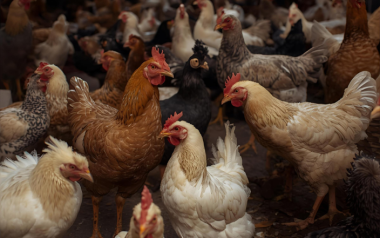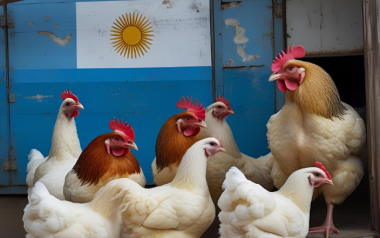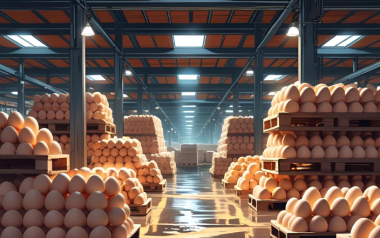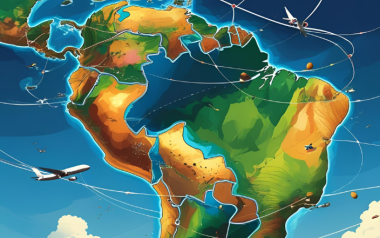Sources: Available upon request
13 Aug 2025
Brazilian egg exports surge 305% ahead of U.S. tariffs
Brazilian egg exports have skyrocketed, surging by an astonishing 305% in July 2025, as the United States grapples with a severe shortage caused by a bird flu outbreak.
Brazilian egg exports have skyrocketed, surging by an astonishing 305% in July 2025, as the United States grapples with a severe shortage caused by a bird flu outbreak. According to data from the Brazilian Association of Animal Protein (ABPA), Brazil shipped 5,259 metric tons of eggs—both fresh and processed—to global markets in July, with the U.S. emerging as the primary destination.
From January to July 2025, Brazil exported 18,976 tons of eggs to the U.S., marking a staggering 1,419% increase compared to the same period last year. These exports generated nearly \$41 million in revenue. The surge was driven by the U.S.’s urgent need to replenish domestic egg supplies, which were severely impacted by avian influenza outbreaks that disrupted production and drove up prices.
- However, this booming trade faces a new challenge.
- On August 6, former President Donald Trump imposed a 50% tariff on Brazilian imports, including eggs, coffee, and beef.
- The move, part of a broader protectionist policy, aims to bolster domestic agriculture but risks curbing the flow of essential goods from Brazil.
Industry experts are uncertain about the long-term impact of the tariff. Ricardo Santin, president of ABPA, noted that while the tariff could dampen trade, the U.S.’s persistent demand might sustain export volumes. “There exists the possibility of maintaining the trade flow, as North American demand remains high in the face of the shortage of the product,” Santin said.
- Brazil’s emergence as a key egg supplier highlights its growing role in global food security.
- Besides the U.S., other major buyers of Brazilian eggs include Chile, Japan, and Mexico.
- The country’s ability to ramp up production and meet international demand has positioned it as a reliable alternative during supply chain disruptions.
Still, the new tariffs introduce uncertainty. Analysts warn that higher costs could reduce competitiveness and shift U.S. buyers toward other markets or domestic producers. The situation underscores the delicate balance between trade policy and food supply resilience.
As global markets adjust to the ripple effects of disease outbreaks and shifting trade dynamics, Brazil’s egg export boom serves as both a testament to its agricultural capacity and a cautionary tale about the fragility of international trade in times of crisis.







































